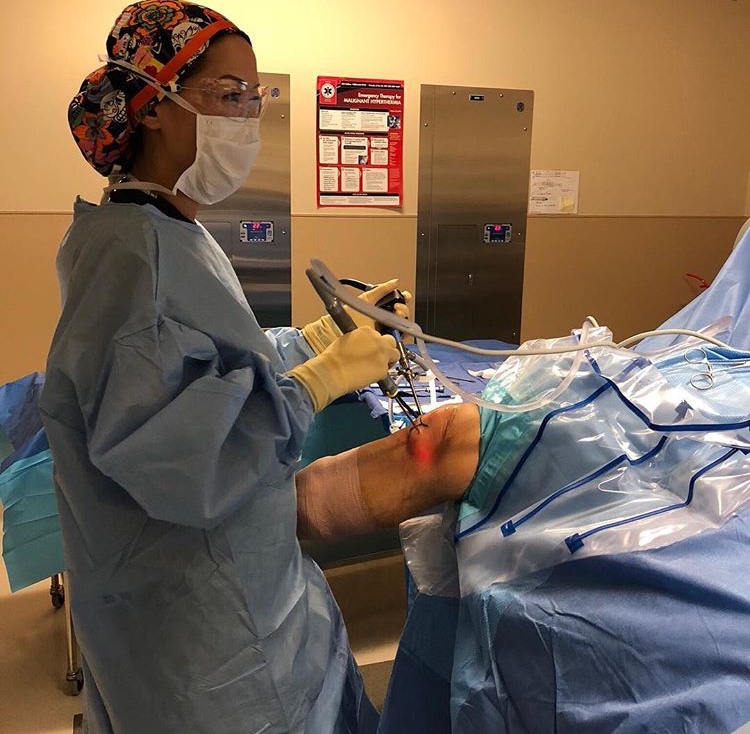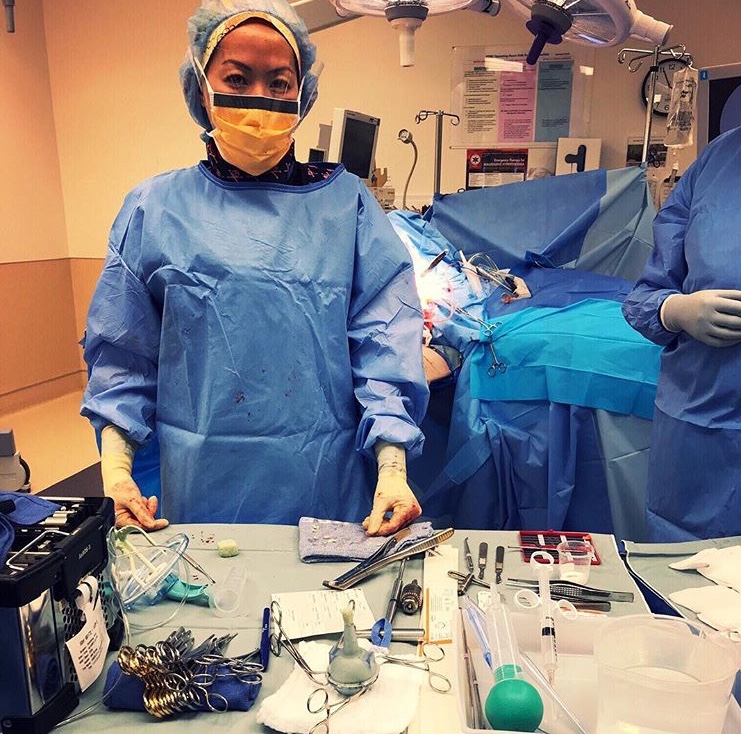
3 Pieces of Advice from a Surgeon
I’m an orthopaedic surgeon.


But, if you told me this was my future when I graduated from college, I’d laugh at you!
When I started college, I thought I was going to study pre-medicine and apply to medical school. It was not a well-thought-out decision. I thought “this is what good Chinese-American children do” — we grow up and we become doctors. In hindsight the goal was parent-driven, not my own. Nevertheless, not well-thought-out.
I came from a medium-sized high school. As a new freshman at UCLA, I walked into my very first class unprepared for the culture-shock Biology 101, or whatever it was called back then, would bring. The size of the class was shocking. 600 other students sat around, all vying for the premed track. Although I enjoyed biology, I got weeded out of the class very quickly. Indeed, these were called the “weeder” classes for a reason.
There I was, a freshman in college with what I thought was going to be a well-defined plan, without direction.
So I decided to start taking classes that just sounded interesting to me. At the end of three years I realized I had accumulated many sociology credits and a lot of psychology credits. At this point, to be honest, I could have flipped a coin to make a decision. Thankfully instead of flipping a coin, I began looking at which major had the edge in terms of a faster route to graduation and I decided to be a psychology major. It’s a quirky way to decide on a major, but at the time, I still didn’t have a long term goal in mind, so I figured graduating would at least help me meet a goal and move on to my next adventure. Overtime, I did find psychology interesting (still do!) and found myself applying for graduate programs in psychology as a default next step. Fortunately for me, I realized that default was not what I wanted to do — It would’ve been a truly expensive detour had I not.
Although I was in a major that I enjoyed, I’ll have to say I lived the full college experience more than excelling in class. I learned who I was, I made lifelong friends, but I can’t say I had the best GPA. While I can technically say I finished with a 3.0, it is only because I can round up from 2.9997! Not exactly the picture of a future doctor!
After I graduated, I again chased my passions which were not necessarily academic, and I worked in the snowboard industry. I loved to snowboard, and I had even entered a competition or two in my younger (and more limber) days. So, naturally, I worked for a small snowboarding company in sales and marketing. I travelled around the country, visiting snowboard retailers and selling our goods. I attended competitions and trade shows and rubbed elbows with athletes and retailers while marketing the boards. It was so much fun, but boy…it sure paid nothing.
I then fell into a new position and became an event coordinator, Mandarin language translator, and ran a small office. It was during this time that I had the opportunity to take some coursework in Chinese medicine and acupuncture. I found it interesting – but not necessarily what I wanted my life career to be. I have the good fortune at that time of working pretty closely with some physicians that also had an interest in complementary medicine and it dawned on me that my path was supposed to include medicine after all.
At that time I was already four years out of college with no premed classes under my belt. I had naysayers and my internal voice wondered if I were smart enough or still young enough – but I decided to go for it. While I was working full-time and often traveling three weekends out of the month, I pieced together my post-baccalaureate classes to meet the requirements, sometimes driving all over the Los Angeles area to attend evening classes at the various Cal State and UCLA extension programs to get my requirements done. This time around there was no weeding me out. I had the clarity of my mission and I was serious about getting into medical school this time. I aced my classes and was very close to a 4.0 GPA. It was the first time in my life that I studied hard. It was during this time that I figured out what study styles worked for me and what did not – and in doing so, I got a great score on the MCAT, too.
I applied to medical school and was admitted the first time around. Going in for interviews, it turned out to be beneficial to be just a little bit older and have had working experience. I came into medical school much more mature than I would have had I come in at age 21. Again, it served me well as I got into my third and fourth year clinical rotations. I was able to relate to people of all different ages because I have done so in my prior work. I felt that I took my schooling more seriously but at the same time being more mature, understood that it was still important to have a release valve and have fun too. I was able to effectively have school-life balance, doing well in classes and rotations but staying well-rounded.
I have a lot of aspiring medical students ask me about my path and how I became a physician in a nontraditional way – even with a low GPA to start. I like to share with them the lessons I’ve learned along the way:
1) It’s never too late.
I think one of the lessons that I take from my path is that it’s never too late. It is important to be introspective about why you choose the career path that you do. It’s important to reassess and reevaluate what your values are overtime so that you know if what you are doing is going to continue to make you happy and feel fulfilled. These values can change over time and I encourage not only younger people just starting to get into medicine but also my peers or those mid-career and older than me to ask themselves: Are you still where you are meant to be?
2) Acknowledge and address fear.
We often have a fear of change. This fear can be paralyzing. Whether it is a college graduate who did not go right into a professional school or someone who is mid-career who feels that so much time and resources have been put into their current position that it is “too late” to make a change – fear drives stagnancy. For me, as I pivoted to apply to medical school, getting over this fear was a big part of my ultimate success in taking the steps to apply and gain admission to medical school.
3) Ask why not.
When somebody asks you “why”, always say “why not?”. There were a lot of people along my path who gave me various reasons as to why I shouldn’t make a career change, apply to medical school, or become a surgeon. This is the most important advice I can encourage you with. Ask “Why not?”. Prove people wrong when you are told you can’t do it.
Ultimately it takes time, introspection, and evaluation to get over these external barriers like a low GPA or a letter of denial from a medical school. It is possible. I’m an example of that. However, it doesn’t primarily matter what external barriers are present – if the internal ones aren’t addressed, no forward progress can be made. Remember, it’s never too late, fight the fear, and ask “Why not?”.
Read more from Nancy Yen Shipley, MD “Nancy, MD” at www.nancymd.com.


